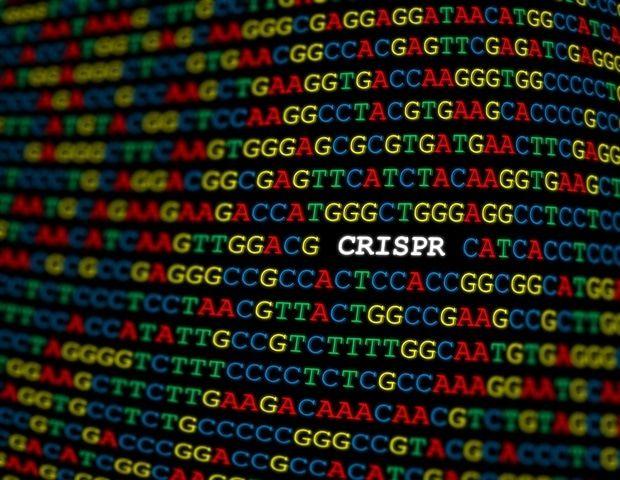AI Language Models Show Promise in Automating Functional Genomics Research
4 Sources
4 Sources
[1]
Large language models could help automate functional genomics research
University of California - San DiegoDec 2 2024 Researchers at University of California San Diego School of Medicine have demonstrated that large language models (LLMs), such as GPT-4, could help automate functional genomics research, which seeks to determine what genes do and how they interact. The most frequently-used approach in functional genomics, called gene set enrichment, aims to determine the function of experimentally-identified gene sets by comparing them to existing genomics databases. However, more interesting and novel biology is often beyond the scope of established databases. Using artificial intelligence (AI) to analyze gene sets could save scientists many hours of intensive labor and bring science one step closer to automating one of the most widely used methods for understanding how genes work together to influence biology. Testing five different LLMs, the researchers found that GPT-4 was the most successful, achieving a 73% accuracy rate in identifying common functions of curated gene sets from a commonly used genomics database. When asked to analyze random gene sets, GPT-4 refused to provide a name in 87% of cases, demonstrating the potential of GPT-4 to analyze gene sets with minimal hallucination. GPT-4 was also capable of providing detailed narratives to support its naming process. While further research is needed to fully explore the potential of LLMs in automating functional genomics, the study highlights the need for continued investment in the development of LLMs and their applications in genomics and precision medicine. To support this, the researchers created a web portal to help other researchers incorporate LLMs into their functional genomics workflows. More broadly, the findings also demonstrate the power of AI to revolutionize the scientific process by synthesizing complex information to generate new, testable hypotheses in a fraction of the time. The study, published in Nature Methods, was led by Trey Ideker, Ph.D., a professor at UC San Diego School of Medicine and UC San Diego Jacobs School of Engineering, Dexter Pratt, Ph.D., a software architect in Ideker's group, and Clara Hu, a biomedical sciences doctoral candidate in Ideker's group. The study was funded, in part, by the National Institutes of Health. University of California - San Diego Journal reference: Hu, M., et al. (2024). Evaluation of large language models for discovery of gene set function. Nature Methods. doi.org/10.1038/s41592-024-02525-x.
[2]
How AI could automate genomics research
Researchers at University of California San Diego School of Medicine have demonstrated that large language models (LLMs), such as GPT-4, could help automate functional genomics research, which seeks to determine what genes do and how they interact. The work is published in the journal Nature Methods. The most frequently-used approach in functional genomics, called gene set enrichment, aims to determine the function of experimentally-identified gene sets by comparing them to existing genomics databases. However, more interesting and novel biology is often beyond the scope of established databases. Using artificial intelligence (AI) to analyze gene sets could save scientists many hours of intensive labor and bring science one step closer to automating one of the most widely used methods for understanding how genes work together to influence biology. Testing five different LLMs, the researchers found that GPT-4 was the most successful, achieving a 73% accuracy rate in identifying common functions of curated gene sets from a commonly used genomics database. When asked to analyze random gene sets, GPT-4 refused to provide a name in 87% of cases, demonstrating the potential of GPT-4 to analyze gene sets with minimal hallucination. GPT-4 was also capable of providing detailed narratives to support its naming process. While further research is needed to fully explore the potential of LLMs in automating functional genomics, the study highlights the need for continued investment in the development of LLMs and their applications in genomics and precision medicine. To support this, the researchers created a web portal to help other researchers incorporate LLMs into their functional genomics workflows. More broadly, the findings also demonstrate the power of AI to revolutionize the scientific process by synthesizing complex information to generate new, testable hypotheses in a fraction of the time. The study was led by Trey Ideker, Ph.D., a professor at UC San Diego School of Medicine and UC San Diego Jacobs School of Engineering, Dexter Pratt, Ph.D., a software architect in Ideker's group, and Clara Hu, a biomedical sciences doctoral candidate in Ideker's group.
[3]
How Artificial Intelligence Could Automate Genomic | Newswise
Functional genomics seeks to identify what genes do and how they interact. Researchers at UC San Diego have demonstrated that large language models such as GPT-4 could make functional genomics research significantly faster and less laborious than current, non-AI approaches. Newswise -- Researchers at University of California San Diego School of Medicine have demonstrated that large language models (LLMs), such as GPT-4, could help automate functional genomics research, which seeks to determine what genes do and how they interact. The most frequently-used approach in functional genomics, called gene set enrichment, aims to determine the function of experimentally-identified gene sets by comparing them to existing genomics databases. However, more interesting and novel biology is often beyond the scope of established databases. Using artificial intelligence (AI) to analyze gene sets could save scientists many hours of intensive labor and bring science one step closer to automating one of the most widely used methods for understanding how genes work together to influence biology. Testing five different LLMs, the researchers found that GPT-4 was the most successful, achieving a 73% accuracy rate in identifying common functions of curated gene sets from a commonly used genomics database. When asked to analyze random gene sets, GPT-4 refused to provide a name in 87% of cases, demonstrating the potential of GPT-4 to analyze gene sets with minimal hallucination. GPT-4 was also capable of providing detailed narratives to support its naming process. While further research is needed to fully explore the potential of LLMs in automating functional genomics, the study highlights the need for continued investment in the development of LLMs and their applications in genomics and precision medicine. To support this, the researchers created a web portal to help other researchers incorporate LLMs into their functional genomics workflows. More broadly, the findings also demonstrate the power of AI to revolutionize the scientific process by synthesizing complex information to generate new, testable hypotheses in a fraction of the time. The study, published in Nature Methods, was led by Trey Ideker, Ph.D., a professor at UC San Diego School of Medicine and UC San Diego Jacobs School of Engineering, Dexter Pratt, Ph.D., a software architect in Ideker's group, and Clara Hu, a biomedical sciences doctoral candidate in Ideker's group. The study was funded, in part, by the National Institutes of Health.
[4]
How artificial intelligence could automate genomics research
New research suggests that large language models like GPT-4 could streamline the process of gene set enrichment, an approach what genes do and how they interact. Results bring science one step closer to automating one of the most widely used methods in genomics research. Researchers at University of California San Diego School of Medicine have demonstrated that large language models (LLMs), such as GPT-4, could help automate functional genomics research, which seeks to determine what genes do and how they interact. The most frequently-used approach in functional genomics, called gene set enrichment, aims to determine the function of experimentally-identified gene sets by comparing them to existing genomics databases. However, more interesting and novel biology is often beyond the scope of established databases. Using artificial intelligence (AI) to analyze gene sets could save scientists many hours of intensive labor and bring science one step closer to automating one of the most widely used methods for understanding how genes work together to influence biology.
Share
Share
Copy Link
Researchers at UC San Diego demonstrate that large language models like GPT-4 could significantly streamline functional genomics research, potentially revolutionizing how scientists understand gene interactions and functions.

AI Models Show Promise in Genomics Research Automation
Researchers at the University of California San Diego School of Medicine have made a significant breakthrough in the field of functional genomics. Their study, published in Nature Methods, demonstrates that large language models (LLMs) like GPT-4 could potentially automate and streamline the process of understanding gene functions and interactions
1
.The Challenge in Functional Genomics
Functional genomics, which aims to determine what genes do and how they interact, has long relied on a method called gene set enrichment. This approach compares experimentally-identified gene sets to existing genomics databases. However, this method has limitations, particularly when it comes to discovering novel biological insights that lie beyond the scope of established databases
2
.GPT-4's Performance in Gene Set Analysis
The research team, led by Trey Ideker, Ph.D., tested five different LLMs and found GPT-4 to be the most promising:
- GPT-4 achieved a 73% accuracy rate in identifying common functions of curated gene sets from a widely used genomics database.
- When presented with random gene sets, GPT-4 refused to provide a name in 87% of cases, demonstrating its ability to analyze gene sets with minimal hallucination.
- The model was capable of providing detailed narratives to support its naming process
3
.
Implications for Genomics Research
The integration of AI in functional genomics could revolutionize the field in several ways:
- Time-saving: AI analysis of gene sets could save scientists many hours of intensive labor.
- Novel insights: AI models may help uncover interesting and novel biology beyond the scope of established databases.
- Hypothesis generation: The findings demonstrate AI's potential to synthesize complex information and generate new, testable hypotheses rapidly
4
.
Related Stories
Supporting Further Research
To facilitate the adoption of this approach, the researchers have created a web portal to help other scientists incorporate LLMs into their functional genomics workflows. This initiative underscores the need for continued investment in the development of LLMs and their applications in genomics and precision medicine
1
.Future Directions
While the results are promising, the researchers emphasize that further research is needed to fully explore the potential of LLMs in automating functional genomics. The study, funded in part by the National Institutes of Health, opens up new avenues for AI applications in genomics research and highlights the transformative power of AI in scientific processes
2
.References
Summarized by
Navi
[2]
[4]
Related Stories
AI Model Predicts Gene Activity in Human Cells, Transforming Biological Research
09 Jan 2025•Science and Research

Google DeepMind's AlphaGenome AI tackles the 98% of human genome that doesn't code for proteins
28 Jan 2026•Science and Research

CRISPR-GPT: AI-Powered Gene Editing Assistant Accelerates Drug Development
17 Sept 2025•Science and Research

Recent Highlights
1
ByteDance's Seedance 2.0 AI video generator triggers copyright infringement battle with Hollywood
Policy and Regulation

2
Demis Hassabis predicts AGI in 5-8 years, sees new golden era transforming medicine and science
Technology

3
Nvidia and Meta forge massive chip deal as computing power demands reshape AI infrastructure
Technology





